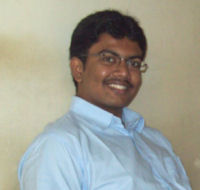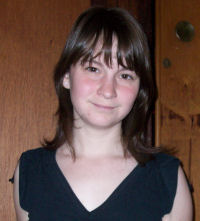'Be an INTEGRAL astronomer' – competition winners announced
8 October 2009
Students from India and South Africa have been selected as the winners of the European Space Agency's 'Be an INTEGRAL astronomer' competition.To celebrate the International Year of Astronomy 2009, ESA organised a competition in which students were presented with data from the European INTEGRAL space observatory and asked to study the Galactic Bulge, one of the most active regions at the heart of our Galaxy. Entrants were required to perform research tasks using INTEGRAL data of variable X-ray sources. The tasks included interpreting the data, searching for evidence of variability and then writing a report on their research. The competition entries were judged by an expert panel comprising ESA scientists.
Secondary school category
 | |
"My interest in the field of astronomy always keeps me excited to explore our Universe," said Shyamal. "(The) 'Be an Integral Astronomer' competition gave me an opportunity and motivation to work, explore and understand the high energy Universe."
The runners-up in this category were:
- Cristina Cirstoiu, Colegiul National "Vlaicu Voda", Curtea de Arges, Romania.
- Lauriane Fillot, Lycee Louis-le-Grand, Paris, France.
- Stanislav Fort, Gymnázium Pierra de Coubertina, Tábor, Czech Republic.
- James Wills, Winchester College, UK.
University undergraduates category
 |
|
Michelle Knights, winner in the University undergraduate category |
"I was very excited when I heard about the INTEGRAL Astronomer competition," she said. "The prizes sounded fantastic of course but I really wanted to try my hand at some 'real' astronomy. I thoroughly enjoyed exploring ways of finding information about objects from natural data and I felt a bit like a detective trying to solve a puzzle."
The runners-up in this category were:
- Phyllis Tzu-Ching Yen, National Tsing Hua University, Taiwan.
- Francisco J. Hernández, Universidad de Valladolid, Spain.
- Vaidehi Sharan Paliya, Banaras Hindu University, India.
- Jacopo Diamanti, Sapienza - Università di Roma, Italy.
First prize for the two winners includes a trip to the European Space Astronomy Centre in Spain, plus an 'Astronomer's starter kit', comprising a Celestron SkyScout, a Media Player and the IYA 2009 book 'Eyes on the Skies'.
The INTEGRAL competition was run as part of the 'International Year of Astronomy 100 Hours of Astronomy' cornerstone project, in which people around the world were given access to leading astronomical observatories.
ESA's INTEGRAL gamma ray observatory has been making groundbreaking observations of the most energetic objects in the Universe since its launch in October 2002.
